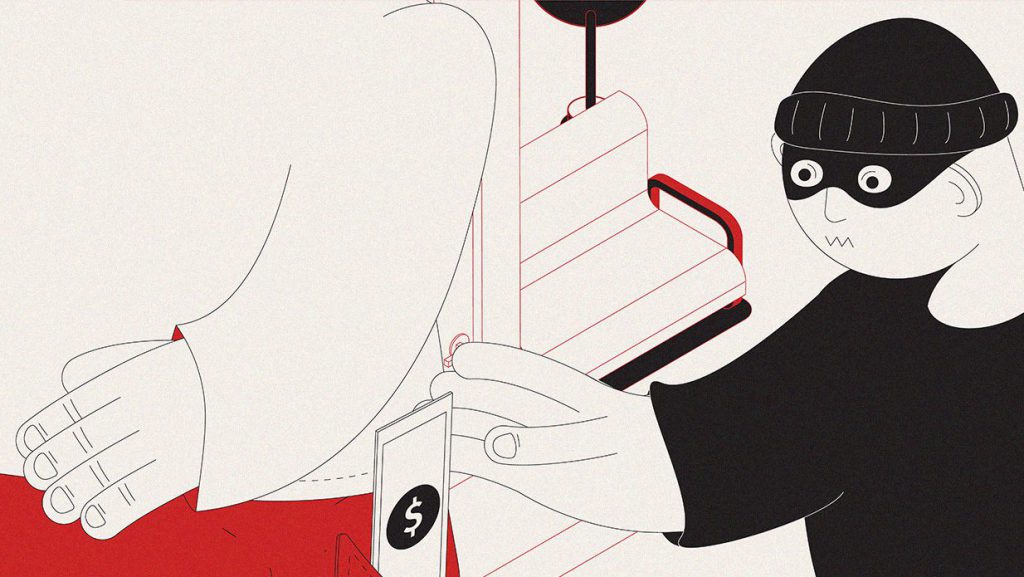The first 10 months of 2021 saw a 265 percent increase in theft crimes compared to the same period in 2019, according to a recent report published by Information International.
Based on data from the General Directorate of Internal Security Forces, the Beirut-based research and consultancy firm said that 503 thefts were documented in October compared to 44 in April—or an average of 16 per day.
“The increase in crimes, and theft in particular, is the result of the political and economic instability,” a security source told Beirut Today. Despite the worrying statistics, the source described the situation as “stable.”
Compared to the first 10 months of 2020, the number of murders slightly decreased by 1.1 percent in 2021. However, it increased by 90 murders or 101 percent compared to 2019.
Car thefts in specific increased by 212 percent, according to Information International. A net total of 1,097 cars were stolen in the first 10 months of 2021, compared to 351 in the same period of 2019. As per ISF data, 3.6 cars have been stolen on average per day this year so far.
The number of thefts increased as a result of several reasons, including Lebanon’s economic meltdown, political instability, and the lack of security in some places as a result of the rampant possession of illegal weapons.
The effect of poverty on theft crimes
“You have around 80 percent of Lebanese families living below the poverty line, a spiralling GDP, and the shutting down of some factories at a time when the number of imports far exceeds the number of exports,” Dr. Wadia Ibrahim Al-Amouni, a researcher and professor at the Lebanese University’s Institute of Social Sciences, told Beirut Today. “The currency is also in freefall, and the country lacks policies for economic, health, and social services.”
UNESCO estimates that 1.25 million Lebanese families live below the poverty line—of which 40 percent are below the extreme poverty line.
“All of this adds pressure on citizens and pushes them to pursue criminal activities to secure their basic necessities,” said Al-Amouni. “The most popular crime is theft.”
Al-Amouni warned that the economic meltdown also pushes people towards suicidal ideation and behavior.
Mental health NGO Embrace received a triple-fold increase in calls to its national suicide prevention hotline (1564) in the past two years. On average in Lebanon, one person attempts suicide every six hours and one person loses their life to suicide every 2.1 days.
The need to address inequality to decrease theft and violence
Increasing punishment severity for crimes generally does not reduce the incidence of crimes when poverty is the main motive driving people towards theft and violence.
Instead of deploying a large number of police officers, Lebanon needs to reduce socio-economic inequalities among its citizens and address the core issues behind the high levels of crime.
Al-Amouni provided the example of Medellín, Colombia—popularly known as the residence of one of the most notorious drug cartel leaders in the world, Pablo Escobar—to back her statement.
“There was an increase in the consumption of drugs in the city, accompanied by an increase in violence, murder, and theft,” she said. “They couldn’t get rid of it without spreading awareness, opening up clubs, working on infrastructure, and establishing different associations. Today, Medellín is one of the world’s most beautiful tourist cities,” she said.
Political protection: Law of the jungle
Al-Amouni also touched on the relevance of the judiciary remaining independent of political influence and delivering justice, which plays a core role in deterring future crimes.
“When the judiciary and ISF lose their power, you can no longer control the situation,” she said, adding that public servants may lose the motivation to work and resort to accepting bribes because their salaries aren’t enough to sustain them.
“If citizens seek the protection of their leaders or obstruct justice, they normalize crimes and allow themselves to commit them premeditatedly and determinedly,” she added.
Al-Amouni said the loss of trust in the government and its institutions, the most important of which is judiciary, increases crime rates. “When it’s the law of the jungle governing us, we’re more likely to resort to political leaders for protection.”
Amidst the current social and economic climate and the lack of political stability, fear is on the rise that crime rates will only increase as people seek to secure bare necessities like food, clean water, a shelter, warmth, and transportation.
“The situation in Lebanon is only worsening, and all indicators point towards a gradual increase in crime,” said Al-Amouni.
